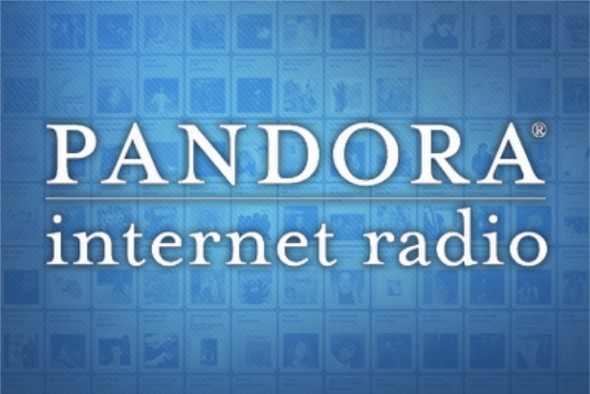After Cracker frontman David Lowery criticized the Internet radio service for paying him what he would “make from a single T-shirt sale,” a spokesperson fires back.
As musicians continue to battle with streaming services over pay scales, one digital music service is fighting back.
Pandora, the Internet radio service that, as of June, claims a 7 percent share of total U.S. radio listening, is taking issue with a blog post authored by Cracker and Camper Van Beethoven frontman David Lowery in which the outspoken singer blasted the company. Lowery’s assertion: that 1 million plays on Pandora yielded a net payment of just over $16, representing 40 percent of the songwriting for hit song “Low”; the total earnings for the million-plus streams come out to around $42.
In addition to posting his own royalty statements, which purport to show a wide gap between payments Lowery received for play on terrestrial radio (more than $1,500), he wrote: “Soon you will be hearing from Pandora how they need Congress to change the way royalties are calculated so that they can pay much much less to songwriters and performers. For you civilians, webcasting rates are ‘compulsory’ rates. They are set by the government (crazy, right?). Further, since they are compulsory royalties, artists cannot ‘opt out’ of a service like Pandora even if they think Pandora doesn’t pay them enough. The majority of songwriters have their rates set by the government, too, in the form of the ASCAP and BMI rate courts — a single judge gets to decide the fate of songwriters (technically not a ‘compulsory’ but may as well be). This is already a government mandated subsidy from songwriters and artists to Silicon Valley. Pandora wants to make it even worse.”
He concluded his post by urging “all songwriters to post their royalty statements and show the world just how terrible webcasting rates are for songwriters.”
But a Pandora spokesperson takes issue with Lowery’s math, telling The Hollywood Reporter, “Mr. Lowery’s calculations grossly understate Pandora’s payments to songwriters.” Pandora claims that it “is by far the highest paying form of radio in the world.…For perspective, to reach the exact same audience, Pandora currently pays over 4.5 times more in total royalties than broadcast radio for the same song.”
An analysis of royalty rates conducted by tech blogger Michael Degusta and posted at theunderstatement.com estimates that the song actually brought in around $1,300 for a million plays. Subtract the various parties who get a cut of that royalty — from SoundExchange to the record company to ASCAP and/or BMI — and Lowery, as a 40 percent stakeholder, would have pocketed around $234, Degusta posits.
The blame, it seems, rests at least in part on performance rights organizations ASCAP and BMI. “The rates Pandora pays were set by the very organizations that represent songwriters and publishers,” says the public company’s rep. “These organizations — BMI and ASCAP — are the very same groups that recently agreed to a long-term licensing agreement with the terrestrial radio industry to pay songwriters significantly less than Pandora.”
The fight doesn’t look like it will die down anytime soon. In fact, it’s spilling over to such services as Spotify, which just today was greeted with a barrage of angry tweets by Radiohead frontman Thom Yorke and producer Nigel Godrich, who pulled their solo releases along with the Atoms for Peace album from streaming destinations. Their argument: Spotify doesn’t support new music but only stands to monetize catalog.
“Make no mistake new artists you discover on #Spotify will not get paid,” wrote Yorke. “Meanwhile shareholders will shortly being rolling in it. Simples.”
Added Godrich: “The numbers don’t even add up for Spotify yet. But it’s not about that. It’s about establishing the model which will be extremely valuable. Meanwhile small labels and new artists can’t even keep their lights on.”
Perhaps Lowery had it right when he wrote at the end of his June 24 blog post, “The revolution will not be webcast.”


